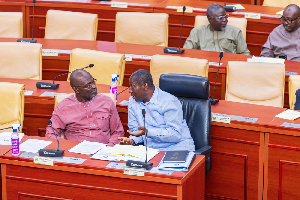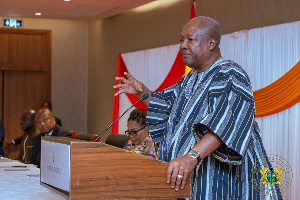Business News of Tuesday, 17 September 2019
Source: goldstreetbusiness.com
High capital requirements scaring foreign investors - Mathew Stephenson
The World Economic Forum is appealing to government to consider reducing the minimum capital requirements imposed on direct foreign investors – or at least different between types of firm to lower minimum capital levels for less capital intensive sectors – to enable more foreign owned firms to invest in Ghana.
Currently, Ivory Coast, Benin, Togo and other West African countries have abolished minimum capital requirements in a bid to attract more foreign investments into those countries.
Ghana’s strategy is however completely different in that regard. Under the Ghana Investment Promotion (GIPC) Act, 2013 (Act 865), the current minimum capital required for retail businesses have been increased from US$300,000 to US$1 million, while foreign investors who participate in joint venture enterprises with Ghanaian partners engaged in other sectors are required to put up minimum capital of US$200,000 with a wholly owned foreign enterprise, providing a minimum capital of US$500,000.
But a resource person from the World Economic Forum, Mr Mathew Stephenson, has said, “Higher capital requirement demands from foreign companies by Ghana, are seen as disincentive to investors and are on the high side when compared to other African countries.”
Mr Stephenson, who was making a presentation at a validation workshop hosted by CUTS Ghana and the GIPC, explained that in addition to reducing the minimum capital requirement for foreign investors, Ghana could consider differentiating between minimum capital requirements for different types of firms particularly those in the technological sector.
Foreign technological companies that want to invest in Ghana, currently have to pay a US$500,000 as minimum capital to set up, but Stephenson thinks the amount is too much and could prevent international investors from coming to do business here since their business is not nearly as capital intensive as, say, manufacturing.
It is indeed instructive to note that other countries in the sub region have abolished such requirements for investments in their technological space.
The Country Director of CUTS Ghana, Mr Appiah Kusi Adomako said such high requirements for investors could subsequently affect foreign direct investment inflows into the country.
Meanwhile, the GIPC is deep into a review of its current investment Act and as such, investors are expecting that the issue of high minimum requirements is reduced to enable more investors to consider Ghana as a viable destination.












